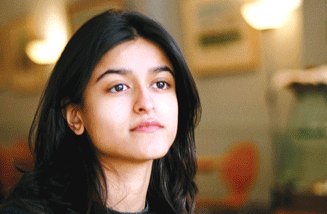Ian Buruma hat das bisher ausführlichste und ausgewogenste Porträt des muslimischen Intellektuellen Tariq Ramadan geschrieben. Zu lesen hier auf der Website des New York Times Magazine.
(Hier mein eigenes Portrait aus der ZEIT zum Nachlesen – etwas skeptischer, aber mit einer ähnlichen Schlussfolgerung wie Buruma.)

Tariq Ramadan
Schlüsselzitat:
What enrages former or current progressives is the apparent paradox that lies at the heart of Ramadan’s political rhetoric. On global capitalism he speaks like a 1968 left-wing student revolutionary, but on social affairs he can sound like the illiberal conservatives whom those students opposed. In American terms, he is a Noam Chomsky on foreign policy and a Jerry Falwell on social affairs.
….
This is the world in which Tariq Ramadan operates, an urban Western environment full of educated but frequently confused young Muslims eager to find attractive models they can identify with. I thought of the Somali-born Dutch activist Ayaan Hirsi Ali, as charismatic in her way as Ramadan. Having had her fill of controversies in the Netherlands (she wrote the film “Submission,” which led to the murder of the filmmaker Theo van Gogh by a Muslim extremist), she now works at the American Enterprise Institute in Washington. Her mission, too, is to spread universal values. She, too, speaks of reform. But she has renounced her belief in Islam. She says that Islam is backward and perverse. As a result, she has had more success with secular non-Muslims than with the kind of people who shop in Brick Lane.
Ramadan offers a different way, which insists that a reasoned but traditionalist approach to Islam offers values that are as universal as those of the European Enlightenment. From what I understand of Ramadan’s enterprise, these values are neither secular, nor always liberal, but they are not part of a holy war against Western democracy either. His politics offer an alternative to violence, which, in the end, is reason enough to engage with him, critically, but without fear.


